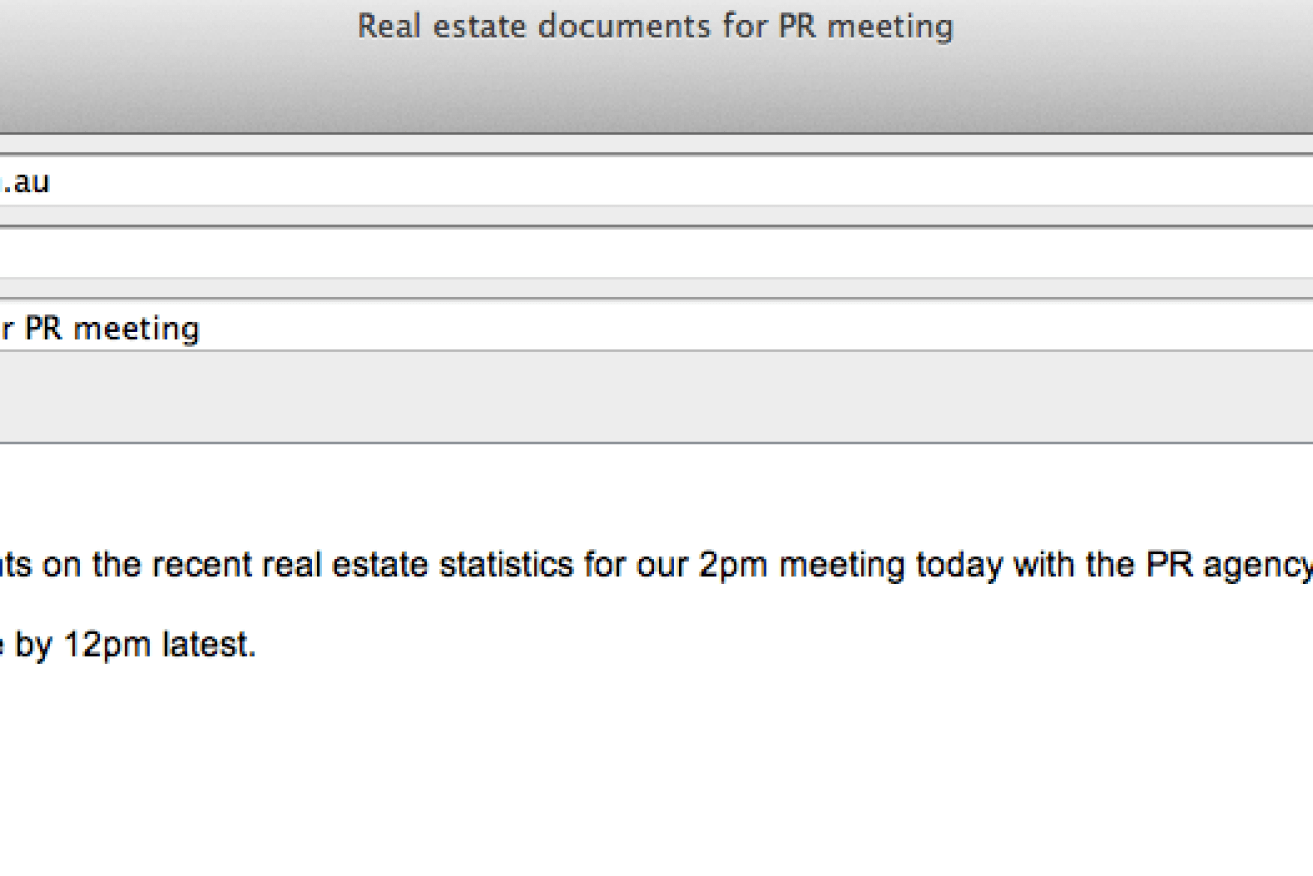Yo! Phrases you should never use in work emails


Let’s face it: everyone has hit “reply all” on an awkward email at least once. And we’ve all misspelled someone’s name or accidentally signed off an email to a colleague with “love you!”
There are just some email faux pas that are more obvious than others, but with the growth of social media how do you know which lines to cross and which to stay firmly behind?
Let us break it down for you.
• How Gen Y is redefining workplace loyalty
• Colleagues wasting your time? Here’s how to stop them
Subject line
 Just like a visit to your least favourite relative’s house, email subject lines should be kept short, informative and low in emotion.
Just like a visit to your least favourite relative’s house, email subject lines should be kept short, informative and low in emotion.
Most inboxes only display up to 60 characters of a subject line, so make sure you get your main keywords out first. Cut the filler words and use descriptive search terms so the email can be more easily located in a chock-full inbox.
Additionally, punctuation and capital letters are not necessary and make the subject section look overcrowded and easier to skim over.
Putting a date or deadline in the subject line will also ensure your email gets seen to in due time.
Greeting
We can rule out greetings like “YO” and “holla” straight off the bat, but where do you go from there?
When it comes to kicking off your email the right way, career psychologist Meredith Fuller says it’s best to take your cues from your colleagues and superiors.
While some managers are fine with a “hi” or encourage you to skip greetings altogether, others may prefer a formal approach like “dear” followed by an honorific.
Whatever you choose, career coach Sally-Anne Blanshard urges you to keep it “consistent and not too casual”.
What to say
 You may feel tempted to develop a little rapport with your colleagues by using your spitfire sense of humour, but the risk of it being misread is far too high.
You may feel tempted to develop a little rapport with your colleagues by using your spitfire sense of humour, but the risk of it being misread is far too high.
Ms Fuller warns to avoid jokes and sarcasm in emails.
“Without the face-to-face or auditory clues, it is very difficult to interpret the meaning behind the text. To avoid misunderstandings, it is smarter to write clearly and unambiguously. Save the wit for when you see them in person.”
Whatever you’re writing about, get to the point quickly. Everyone is busy and no one has time to read a mini novel.
According to Ms Fuller, a failsafe formula is to “provide the information or query and then tell them what you need”.
It goes without saying that insults, personal problems and whiney complaints are to be avoided at all costs.
Smileys?
Sure, smileys are adorable and a great way to convey emotion. But are they appropriate? Probably not.
“I suspect that little smileys may imply that you have plenty of time to fiddle about,” Ms Fuller says. “Not a good message.”
Ms Blanshard offers an alternative view: “Smileys can be used only when referencing personal stuff, to soften the blow of words”.
Of course, it’s up to you to read the situation and gauge what’s suitable, but if you’re worried, avoiding smileys altogether is a good way to play it safe.
 The sign-off
The sign-off
Just like the greeting, your sign-off should reflect your workplace protocols.
“Many organisations finish with a comment that invites the action required,” Ms Fuller says.
“For example, ‘Let me know ASAP’, or ‘What do you think?’”
Often, closing with your name isn’t necessary.
“It is obvious who you are and who you are sending the email to,” Ms Fuller explains.
“Wasting time on “Dear Danielle” or “Yours sincerely, Brian” is so last century!”
You can’t go wrong by being positive, grateful and upbeat.
“’Thanks’, ‘Kind regards’ and ‘Cheers’ – are all fine with me!” Ms Blanshard says.
When an email doesn’t cut it
Emails are a gift for lazy people because they require little effort, movement or social interaction. Unfortunately, some situations call for more than just a written missive.
Ms Blanshard says addressing office conflict over email is a suspicious move.
“For any form of conflict – anything you think you would have preferred to have been spoken to about – an email just seems to be a written record of it and who knows who could be BCC’d,” Ms Blanshard says.
Consult major issues in person, preferably with another person or mediator present, rather than doing it over email.










